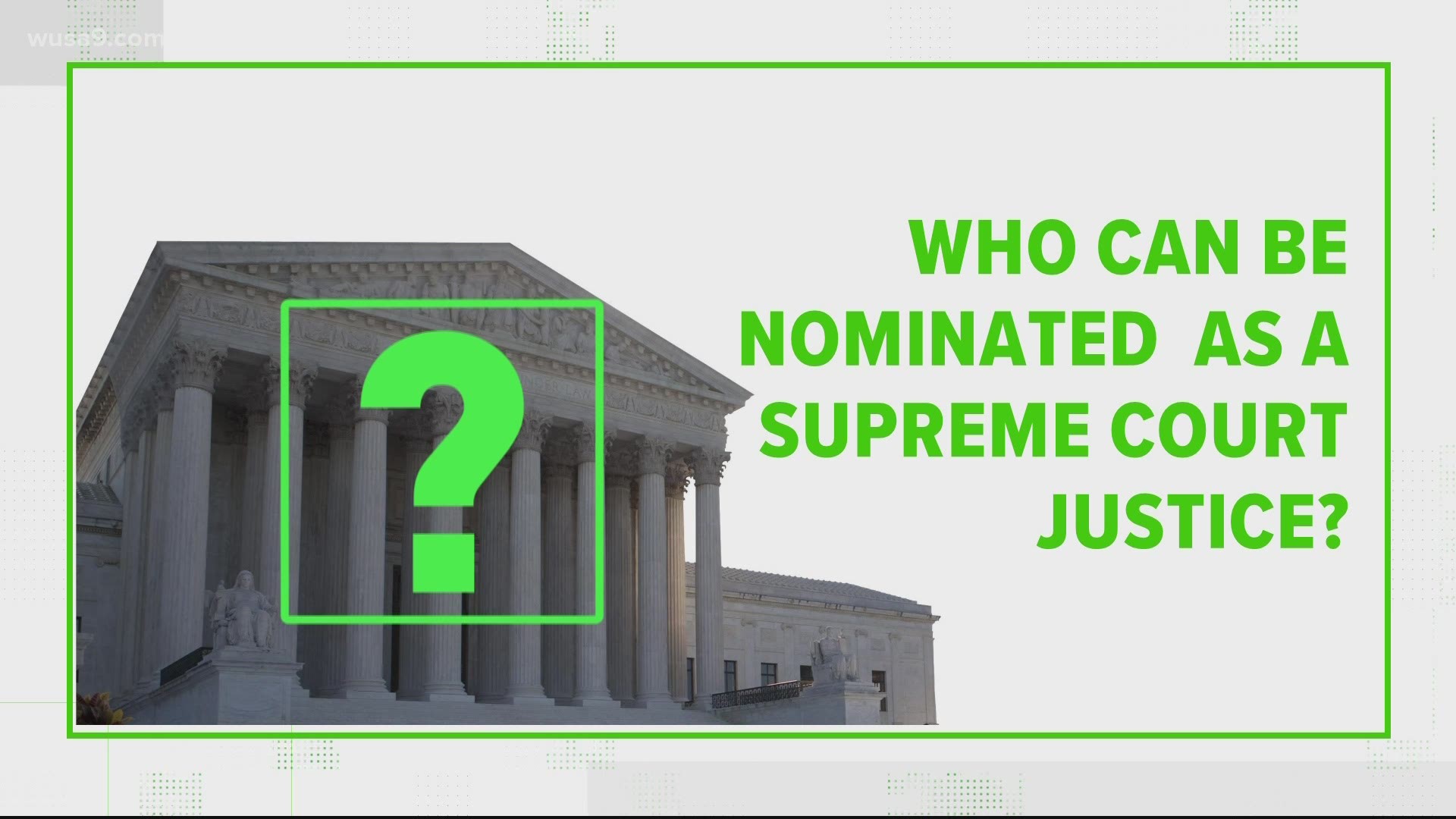WASHINGTON — Question:
If Amy Coney Barrett is sworn in before the election, would she be required to recuse herself for any lawsuit relating to a disputed 2020 election?
Answer:
No. Legal experts told the Verify team that Supreme Court justices are not obligated to follow any recusal standards. That being said, justices have tended to follow a set of rules, dictating when they recuse themselves.
Disputed elections have landed in front of the Supreme Court only one time, during the historic 2000 election. For this reason, there's a lack of consensus within legal and political circles as to whether Barrett should recuse herself.
In the end, this will be a personal decision by Barrett, due to the lack of constitutional requirements.
Sources:
Victoria Nourse, Georgetown University Law Center
Paul Schiff Berman, The George Washington University Law School
Process:
Throughout this upcoming Supreme Court nomination process, the Verify team will be working to separate fact from fiction when it comes to online claims.
Across social media, people have begun asking whether Amy Coney Barrett would be required to recuse herself if she is sworn in before the election -and then there is a Supreme Court ruling over a disputed election, as there was in 2000.
The calls for her to recuse herself in such a situation have also been made by Democratic politicians.
“If she does not recuse herself," Sen. Cory Booker, on Meet The Press on September 27, "I fear that the court will be further de-legitimized.”
To find the truth, the Verify team reached out to a pair of law professors, Victoria Nourse, from Georgetown University Law Center, and Paul Schiff Berman, from The George Washington University Law School. The Verify team also looked through the Code of Conduct for United States Judges.
“A judge shall disqualify himself or herself in a proceeding in which the judge’s impartiality might reasonably be questioned," the Code of Conduct reads.
The code of conduct then proceeds to list off the many reasons one might be required to recuse themselves, including the following:
- If the judge has "a personal bias or prejudice" concerning the case.
- If the judge "served as a lawyer in the matter."
- If the judge has a "financial interest" in the subject matter.
- If the judge or the judge's family member is involved in the case
- If the judge "has served in governmental employment and in that capacity participated as a judge (in a previous judicial position), counsel, advisor, or material witness concerning the proceeding..."
Our legal experts emphasized that these rules are not constitutionally binding. While judges in lower courts can be reprimanded by a committee on ethics if they fail to follow these rules, there is nobody policing Supreme Court ethics.
“The ethical rules do not apply to the Supreme Court of the United States," said Nourse. "They help administer these rules.”
Nourse said that justices will often recuse themselves, but this is a personal decision. Recusals are not mandated for these justices.
"They do it as a matter of grace (as) they call it," she said. "Or a matter of wisdom.”
Within political and legal circles, there's still considerable debate as to whether Barrett should recuse herself in such a situation. But there is a consensus that she would not be required to recuse herself by the Constitution, if the Supreme Court were to hear a case, regarding a disputed 2020 election.


